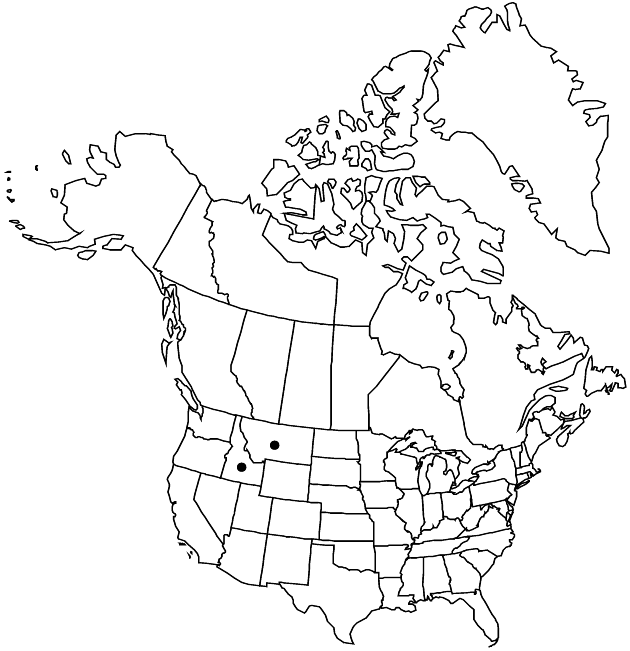Difference between revisions of "Ericameria parryi var. montana"
Phytologia 75: 89. 1993.
Common names: Mountain rabbitbrush
EndemicConservation concern
Basionym: Chrysothamnus parryi subsp. montanus L. C. Anderson Phytologia 38: 319, fig. 5. 1978
FNA>Volume Importer |
imported>Volume Importer |
||
| (2 intermediate revisions by 2 users not shown) | |||
| Line 8: | Line 8: | ||
}} | }} | ||
|common_names=Mountain rabbitbrush | |common_names=Mountain rabbitbrush | ||
| + | |special_status={{Treatment/ID/Special_status | ||
| + | |code=E | ||
| + | |label=Endemic | ||
| + | }}{{Treatment/ID/Special_status | ||
| + | |code=C | ||
| + | |label=Conservation concern | ||
| + | }} | ||
|basionyms={{Treatment/ID/Basionym | |basionyms={{Treatment/ID/Basionym | ||
|name=Chrysothamnus parryi subsp. montanus | |name=Chrysothamnus parryi subsp. montanus | ||
| Line 53: | Line 60: | ||
|publication title=Phytologia | |publication title=Phytologia | ||
|publication year=1993 | |publication year=1993 | ||
| − | |special status= | + | |special status=Endemic;Conservation concern |
| − | |source xml=https:// | + | |source xml=https://bitbucket.org/aafc-mbb/fna-data-curation/src/2e0870ddd59836b60bcf96646a41e87ea5a5943a/coarse_grained_fna_xml/V19-20-21/V20_138.xml |
|tribe=Asteraceae tribe Astereae | |tribe=Asteraceae tribe Astereae | ||
|genus=Ericameria | |genus=Ericameria | ||
Latest revision as of 20:00, 5 November 2020
Plants 10–20 cm (intricately branched). Leaves moderately crowded, green; blades 1-nerved, linear, 20–35 × 1–2 mm, faces glabrous, viscidulous; distal overtopping arrays. Heads 2–5 in ± cymiform arrays or borne singly. Involucres 10–11.5 mm. Phyllaries (11–)13–18, ± chartaceous, outer apices long-acuminate, herbaceous, inner acuminate (viscidulous). Florets (4–)5–12; corollas yellow, 9–10 mm, tubes finely glandular-puberulent, throats gradually dilated, lobes 1.4–1.7 mm. 2n = 18.
Phenology: Flowering late summer–fall.
Habitat: Rocky slopes near timberline
Elevation: ca. 2900 m
Discussion
Of conservation concern.
Variety montana is known only from Red Conglomerate Peaks at the Idaho/Montana border.
Selected References
None.
Lower Taxa
None.
